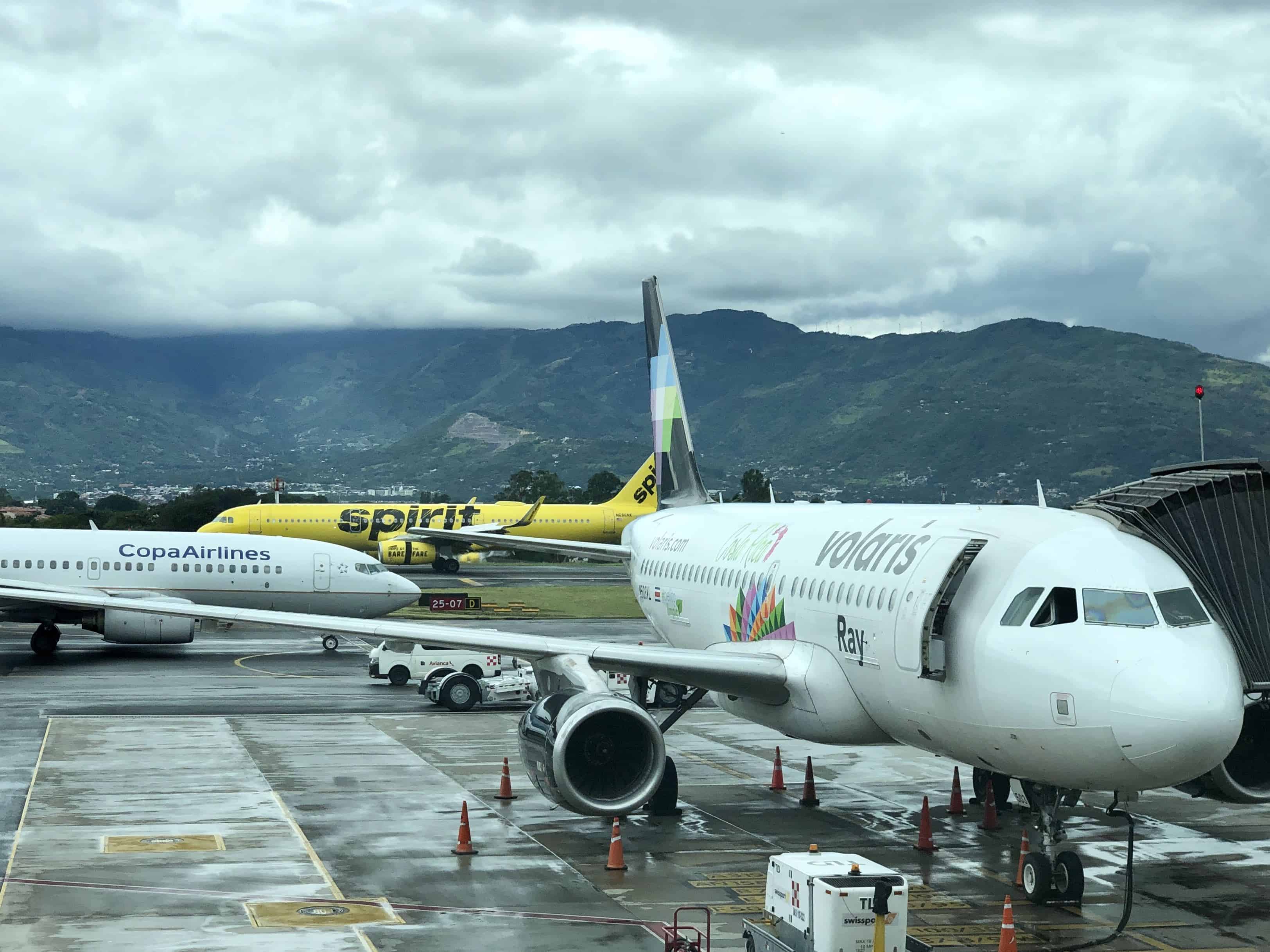Tourists from anywhere in the world can visit Costa Rica during the Covid-19 pandemic.
Visitors can arrive to Costa Rica via land, air or sea ports of entry. Costa Rica does not require a negative coronavirus test, but travel medical insurance is necessary for unvaccinated adults.
Here are are the requirements to enter Costa Rica:
- Everyone must out the electronic epidemiological HEALTH PASS form, available at https://salud.go.cr. This should be completed in the 72 hours before arrival in Costa Rica. It generates a QR code that you must show upon arrival; airlines also ask for it at check-in or at boarding. One Health Pass form must be completed per person, including minors, without exception.
- Adults must show proof of complete vaccination, with the second dose coming at least 14 days prior, OR purchase Traveler’s Medical Insurance covering the duration of their stay in Costa Rica. (Minors do not need insurance or vaccination at this time).
Qualifying vaccines are two doses of AstraZeneca, Pfizer, or Moderna — or a mix of the aforementioned formulas — or one dose of Johnson & Johnson. For U.S. visitors, the Covid-19 vaccination record card meets the insurance requirement; a photo should be uploaded to the Health Pass.
Adult tourists who are unvaccinated or partially vaccinated need insurance. Those visitors obtain it either from an international company, or purchased through the National Insurance Institute (INS), Sagicor or BlueCross BlueShield of Costa Rica. These last three policies are pre-approved and guaranteed to be accepted by Costa Rican authorities. However, many visitors choose international policies, because they are often cheaper.
Tourists who opt to purchase an international policy must bring a letter demonstrating:
- Guaranteed coverage of medical expenses in the event of becoming ill with COVID-19 while in Costa Rica, for at least $50,000 USD.
- Minimum coverage of $2,000 USD for lodging expenses issued as a result of the pandemic.
- Validity of the policy throughout the planned stay in Costa Rica.
In addition to the coronavirus-related measures, tourists must also meet Costa Rica’s general visa requirements; visitors must have a valid passport and proof of intent to exit the country (an outbound ticket) within 90 days.
The Costa Rica Tourism Board (ICT) lists all the current entry requirements for tourists on its website. Click here for the official page.
Requirements for returning Costa Rica residents
Foreigners with temporary or permanent residence do not need to purchase an insurance plan if they are current on Social Security (CCSS, or Caja) payments.
Residents should have proof they’re up-to-date on Caja payments. This can be verified at: https://sfa.ccss.sa.cr/servMedicos/validarDerechos.do
If a resident is not current on her Caja payments, they must purchase an insurance policy covering at least 22 days in Costa Rica. The requirements for this policy are the same as if they were a tourist.
Residents must also complete the Health Pass.
Requirements for returning Costa Rican citizens
Costa Rican citizens must complete the Health Pass. There are no additional insurance or vaccination requirements, though the Health Ministry would like to know if citizens have been vaccinated abroad.
Frequently asked questions
Does Costa Rica have vaccine mandates?
It will soon, although the Covid-19 vaccine is not required to enter Costa Rica.
As of December 1, the Covid-19 vaccine will be required to enter some businesses and participate in some activities. (The establishment can choose whether or not to require vaccination.)
Starting January 8, the vaccine will be required to enter: Restaurants and food courts; bars and casinos; stores and commercial centers; museums; gyms; hotels; worship sites; event halls; adventure tourism activities; theaters and cinemas; sporting events.
Click here for more information about the upcoming vaccine rules.
Do I need to quarantine after arriving in Costa Rica?
No.
How can I confirm if my foreign insurance policy or vaccine card will be accepted?
The insurance policy will be accepted if you bring a letter (in English or Spanish) demonstrating it meets the requirements. However, for both insurance and vaccines, you can email seguros@ict.go.cr before your trip to confirm.
If I own property in Costa Rica, do I still need insurance?
You still need health insurance if you are unvaccinated. However, proof of property ownership can waive the lodging expenses requirement for your insurance policy. Email seguros@ict.go.cr, and they can confirm if you qualify.
What if I test positive for Covid-19 in Costa Rica?
If you test positive for the coronavirus or are deemed a close contact to someone who has, you may be issued a self-isolation order. You will be required to remain at your residence until that sanitary order is lifted. If you are caught violating a stay-at-home order, you may be detained. You cannot leave the country until the order is lifted.
Call 1322 or 911 if you are experiencing a medical emergency. 1322 is Costa Rica’s coronavirus hotline. Both services are staffed by English and Spanish speakers.
How long is a tourist visa?
Tourist visas are typically issued for 90 days. However, during the pandemic, you may be stamped for only the duration of your insurance policy (if applicable) or until the date of your exit flight.
I’m a perpetual tourist. Can I do a ‘border run’?
Yes, though Panama and Nicaragua require negative tests for entry. Panama may also impose a 72-hour quarantine for unvaccinated tourists.
Where can I get a coronavirus test?
Many private labs and hospitals offer on-demand PCR coronavirus testing for a fee. Here is a full list. Both airports (SJO and LIR) offer on-site Covid testing.
Where can I get a coronavirus vaccine?
Vaccines are available to tourists through October 28. All teen (12+) and adult citizens, residents and migrants who can demonstrate their permanence in Costa Rica are eligible for vaccines. More information, including vaccine sites, at the official government website.
What are the current coronavirus restrictions?
Nearly all commercial activities are allowed. This includes hotels, restaurants, beaches, national parks, and open-air tourism activities. Masks are required indoors; you can be denied entry into an establishment if you don’t wear a mask.
Some mass-gathering events (e.g. sports, concerts) can have in-person attendance with vaccinated guests.







